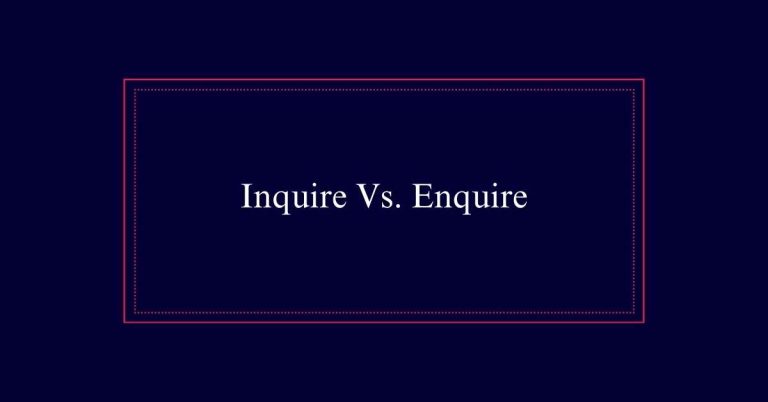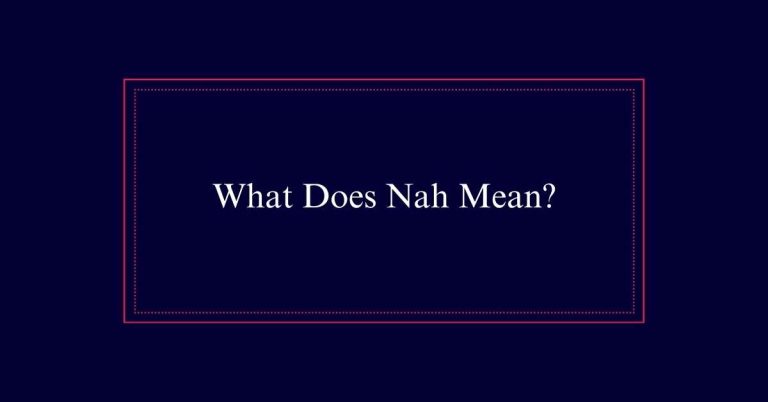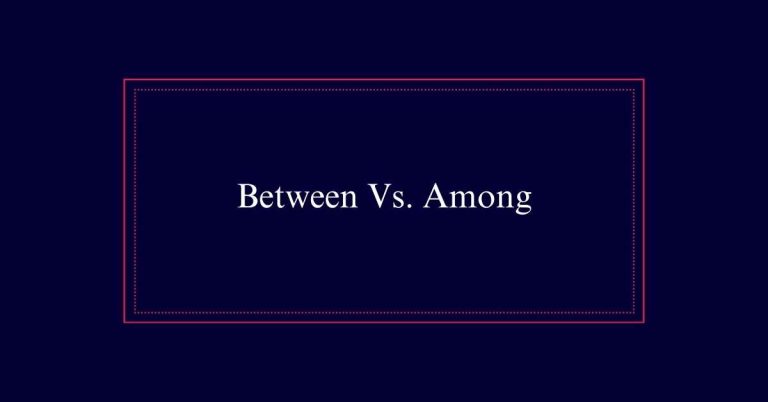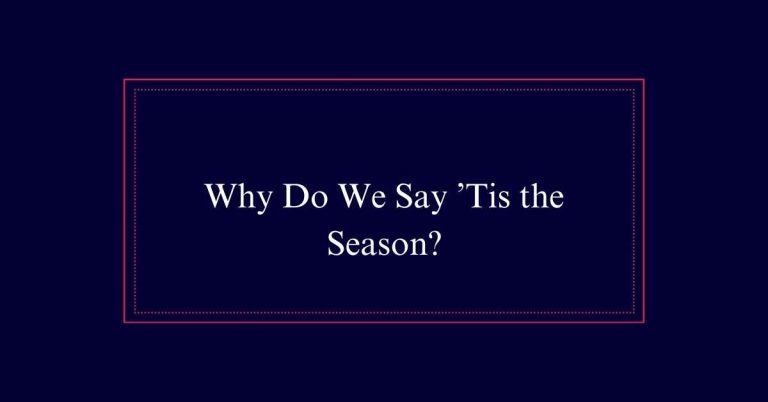Bear vs. Bare?
‘Bear’ and ‘bare’ sound alike but have different meanings. ‘Bear’ is a verb that means to tolerate, carry, or endure. For example, “Bear with me,” and “He bears the weight.” ‘Bare,’ on the other hand, is an adjective meaning minimal, naked, or uncovered. It can also be a verb meaning to reveal, as in “bare the facts.” A common mistake is using ‘bare’ instead of ‘bear’ in phrases like “bear the cost.”
Bear: Definition and Uses
Bear, as a verb, primarily means to tolerate, carry, or endure. It is often used in contexts requiring patience or resilience. For example, one might say, ‘She could hardly bear the thought of selling her vintage car,’ indicating emotional endurance.
Another common usage is in phrases like ‘bear with me,‘ which means to be patient. Additionally, ‘bear the cost’ refers to taking responsibility for expenses. The verb also implies physical bearing, such as ‘bear weight’ meaning to support.
In idiomatic expressions, ‘bear fruit’ signifies producing positive results. Understanding these various uses of ‘bear’ is essential for clear and effective communication, especially in formal writing and speech contexts.
Bare: Definition and Uses
Bare, in contrast, is an adjective that describes something minimal, naked, or uncovered. It is often used to indicate a lack of covering or something reduced to its simplest form. For example, a room can be described as bare if it has no furniture.
The phrase ‘bare minimum’ refers to the least amount necessary. Additionally, bare can be used as a verb, meaning to reveal or expose, such as in the sentence ‘She decided to bare her soul.’ The word is versatile and can describe both physical states and abstract concepts. Understanding its usage helps in conveying clear and precise descriptions in writing.
Common Mistakes
Confusing ‘bear’ and ‘bare’ is a common mistake due to their similar pronunciation but distinct meanings.
One typical error is using ‘bare’ instead of ‘bear’ in phrases like ‘bear with me’ or ‘bear the cost.’ The word ‘bear’ means to endure or support, whereas ‘bare’ means minimal or uncovered.
For instance, writing ‘bare the pain’ instead of ‘bear the pain’ is incorrect. Another frequent mistake is using ‘bear’ for ‘bare’ when describing something uncovered, such as ‘bare feet.’
Misusing these words can lead to misunderstandings. To avoid errors, remember that ‘bear’ often involves carrying or enduring, while ‘bare’ refers to exposure or minimalism.
Always double-check your usage in context.
Bear in Context
Understanding how to use ‘bear’ correctly in different contexts is essential for clear communication.
As a verb, ‘bear’ means to tolerate, carry, or endure. For example, you might say, ‘She could hardly bear the noise,’ meaning she found it difficult to tolerate.
In another context, ‘bear’ can mean to carry, as in ‘He bears a heavy load.’ It can also imply enduring hardships, like in ‘They had to bear the harsh winter.’
Additionally, idiomatic expressions use ‘bear,’ such as ‘bear in mind,’ which means to remember, or ‘bear the cost,’ which means to pay for something.
Using ‘bear’ correctly ensures your message is precise and understood.
Bare in Context
In various contexts, ‘bare’ often describes something minimal, naked, or uncovered. This term can be applied in numerous ways to convey simplicity or lack. For instance, the phrase “bare minimum” refers to the least amount necessary. In another scenario, “bare walls” indicate walls without any decorations. The word also finds use in expressions like “bare truth,” which means unembellished reality.
To illustrate, here is a table showcasing different uses of ‘bare’:
| Context | Example Phrase | Meaning |
|---|---|---|
| Minimal | Bare minimum | Least amount necessary |
| Uncovered | Bare walls | Walls without decorations |
| Truth | Bare truth | Simple, unembellished reality |
Idioms With Bear
How can idioms featuring the word ‘bear’ enhance your understanding of its versatile meanings?
Idioms with ‘bear’ illustrate its various uses. For example, ‘bear the brunt’ means to endure the worst part of something.
‘Bear in mind’ suggests remembering or considering something important.
‘Bear witness’ means to testify or confirm.
These idioms show ‘bear’ as a verb related to carrying, enduring, or supporting.
In ‘bear fruit,’ it means to produce results, linking to growth and outcomes.
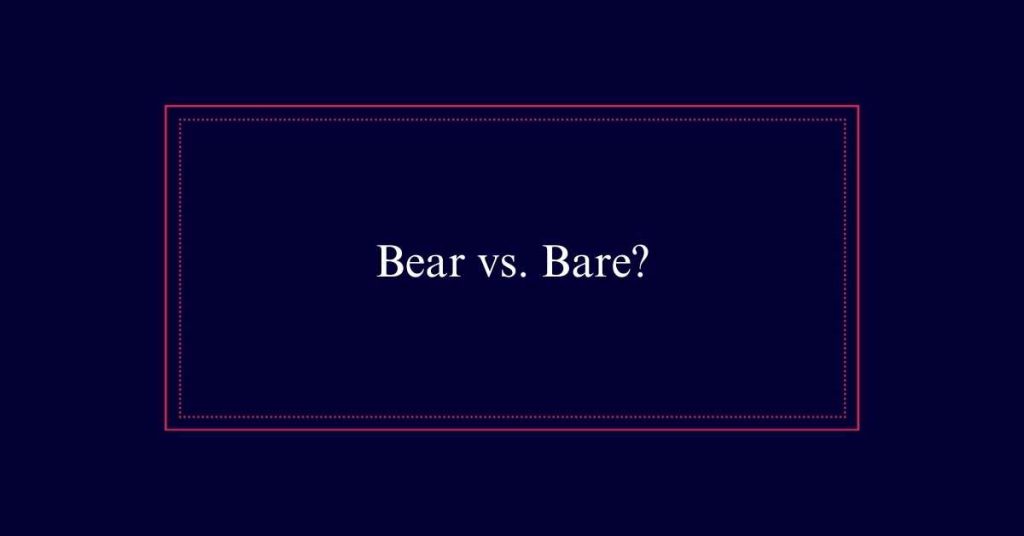
Expressions With Bare
Lastly, idioms with ‘bear’ highlight its various meanings, expressions with ‘bare’ focus on minimalism and exposure.
Common phrases include ‘bare essentials,’ which refers to only the most necessary items. ‘Bare minimum’ denotes the least amount needed to achieve something. In conversation, ‘bare your soul’ means to reveal one’s deepest feelings or thoughts. Another common usage is ‘bare bones,’ indicating the most basic or essential form of something. Each of these expressions emphasizes simplicity and rawness.
‘Bare truth’ highlights honesty without embellishment. Finally, ‘bare facts’ presents information plainly, without added detail. These expressions with ‘bare’ underscore themes of simplicity, honesty, and minimalism in communication.
Literature Examples
Drawing from classic and contemporary works, literature provides insightful examples of ‘bear’ and ‘bare’ in varied contexts.
In Charlotte Brontë’s *Jane Eyre*, the character Jane declares, ‘Do you think I am an automaton… and can bear to have my morsel of bread snatched from my lips?’ Here, ‘bear’ means to endure.
Guy de Maupassant’s quote, ‘But black words on a white page are the soul laid bare,’ uses ‘bare’ to mean exposed or uncovered.
Martin Luther King Jr. poignantly states, ‘Hate is too great a burden to bear,’ emphasizing the weight of enduring hatred.
These examples illustrate how ‘bear’ and ‘bare’ convey different meanings and enrich literary expression.
Practical Examples
In everyday scenarios, using ‘bear’ and ‘bare’ correctly can prevent misunderstandings and convey precise meaning.
For example, ‘Please bear with me’ means to be patient, while ‘She began to bare her soul’ means to reveal deeply personal thoughts.
When you say ‘bear the cost,’ you imply taking on an expense, whereas ‘bare minimum’ refers to the least amount necessary.
If you write, ‘The tree can bear fruit,’ it means the tree produces fruit. On the other hand, ‘The cupboard is bare’ indicates it is empty.
Proper usage guarantees clear and effective communication. Knowing these distinctions enhances both written and verbal exchanges.
Frequently Asked Questions
How Did the Words ‘Bear’ and ‘Bare’ Originate?
The word “bear” originates from Old English “beran,” meaning to carry. “Bare” comes from Old English “bær,” meaning uncovered. Both words have retained their core meanings through linguistic evolution.
Are There Any Historical Uses of ‘Bear’ and ‘Bare’ That Are No Longer Common?
Historically, “bear” was used to mean “to bring forth” as in childbirth, which is less common today. “Bare” once described a lack of decoration or clothing more frequently, but modern usage has shifted to simpler expressions.
Can ‘Bear’ and ‘Bare’ Be Used in Legal Terminology?
In legal terminology, “bear” can mean to assume responsibility or endure, while “bare” might refer to minimal or uncovered facts. Both terms are utilized to convey specific obligations or conditions within legal documents.
How Do Other Languages Differentiate Between Concepts of ‘Bear’ and ‘Bare’?
Other languages often use distinct words to differentiate between ‘bear’ and ‘bare.’ For instance, in Spanish, ‘bear’ translates to “soportar” or “llevar,” while ‘bare’ translates to “desnudo” or “despojado,” ensuring clarity in meaning.
Are There Any Regional Dialects That Pronounce ‘Bear’ and ‘Bare’ Differently?
Regional dialects in English generally do not differentiate the pronunciation of “bear” and “bare.” Both words are homophones, pronounced identically in most English-speaking regions, making them indistinguishable in spoken language.


